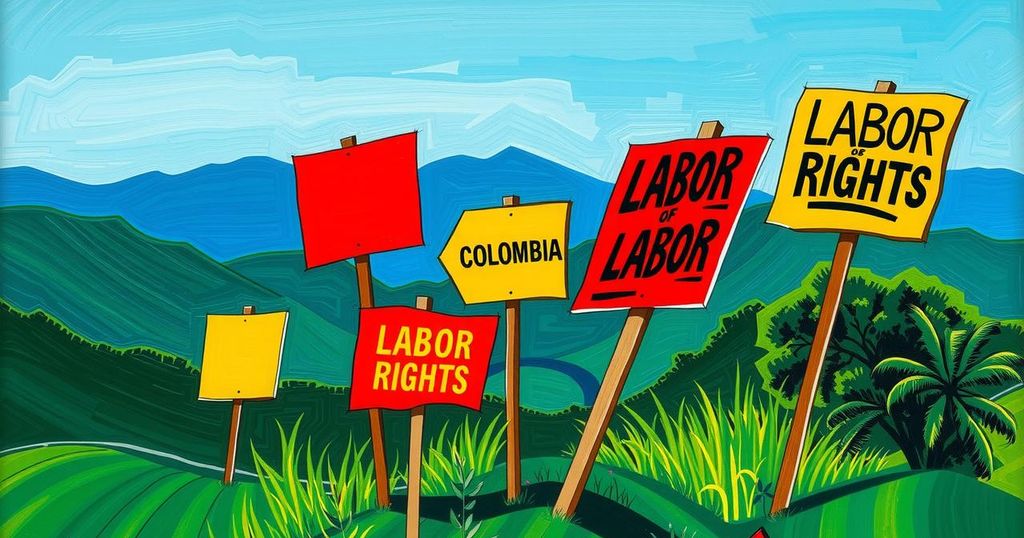Colombia Senate Commission Rejects Labor Reform Amidst Mass Protests

A Colombian Senate commission has voted against a proposed labor reform despite widespread protests led by President Gustavo Petro. The reform sought to enhance workers’ rights but faced opposition claiming it would increase unemployment. Petro encouraged ongoing protests and might pursue a referendum to push for legislation that aligns with public opinion.
A 14-member commission within Colombia’s Senate has rejected a labor reform proposal, despite widespread public support and protests instigated by President Gustavo Petro. Eight senators, who had previously indicated their dissent, voted against forwarding the reform for plenary debate, leading to this significant setback for the government’s agenda.
This proposed labor reform aimed to significantly bolster workers’ rights in Colombia, conforming with internationally recognized labor standards. Key elements included provisions for compensation for labor after 7 PM, restrictions on temporary contracts for permanent roles, and stipulations allowing women to call in sick due to menstrual issues. Additionally, the reform proposed a minimum wage for student interns.
Opposition parties have argued that the reforms would result in increased unemployment and complicate access to formal jobs. The vote coincided with significant protests across the nation, where tens of thousands rallied in support of the reform.
President Petro addressed demonstrators in Bogota, urging for “permanent and growing” protests advocating for a referendum aimed at compelling Congress to take action on the reforms. This referendum must be sanctioned by the Senate, where the government currently lacks a guaranteed majority.
Tensions regarding labor reform, alongside health and pension reforms, have escalated since President Petro assumed office. With less than 18 months left in his term, the president faces formidable challenges in obtaining the necessary congressional approvals amidst a robust opposition comprising liberals, conservatives, and the far-right faction known as “Uribistas.”
The potential referendum represents a mechanism to synchronize Congressional legislation with public sentiment, circumventing the political influences of individual lawmakers and addressing the pressing demands of Colombian citizens.
In conclusion, the Senate commission’s rejection of the labor reform reflects significant political tensions and public dissent in Colombia. While the proposed changes aimed to enhance worker rights in accordance with global standards, opposition claims of potential unemployment resurgence pose a formidable challenge. With President Petro’s call for sustained public engagement and a potential referendum on the horizon, the landscape of Colombian labor policy remains contentious and uncertain.
Original Source: colombiareports.com







